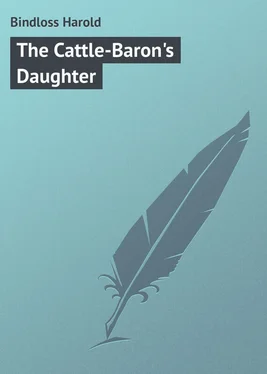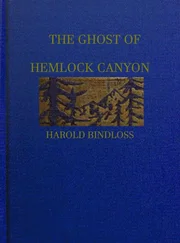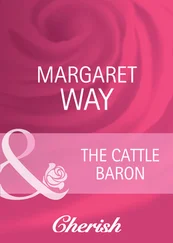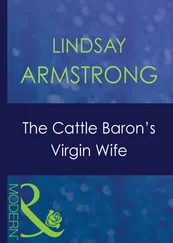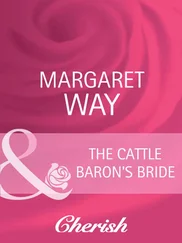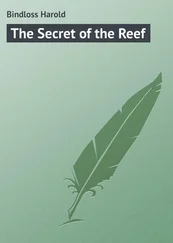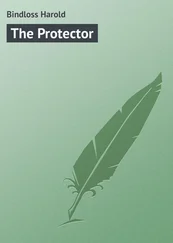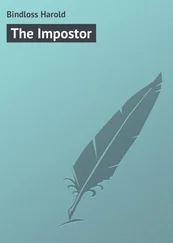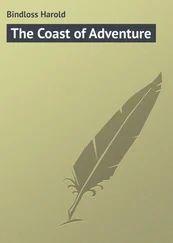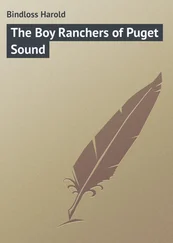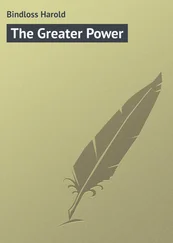Harold Bindloss - The Cattle-Baron's Daughter
Здесь есть возможность читать онлайн «Harold Bindloss - The Cattle-Baron's Daughter» — ознакомительный отрывок электронной книги совершенно бесплатно, а после прочтения отрывка купить полную версию. В некоторых случаях можно слушать аудио, скачать через торрент в формате fb2 и присутствует краткое содержание. Издательство: Иностранный паблик, Жанр: foreign_adventure, foreign_prose, foreign_language, на английском языке. Описание произведения, (предисловие) а так же отзывы посетителей доступны на портале библиотеки ЛибКат.
- Название:The Cattle-Baron's Daughter
- Автор:
- Издательство:Иностранный паблик
- Жанр:
- Год:неизвестен
- ISBN:нет данных
- Рейтинг книги:3 / 5. Голосов: 1
-
Избранное:Добавить в избранное
- Отзывы:
-
Ваша оценка:
- 60
- 1
- 2
- 3
- 4
- 5
The Cattle-Baron's Daughter: краткое содержание, описание и аннотация
Предлагаем к чтению аннотацию, описание, краткое содержание или предисловие (зависит от того, что написал сам автор книги «The Cattle-Baron's Daughter»). Если вы не нашли необходимую информацию о книге — напишите в комментариях, мы постараемся отыскать её.
The Cattle-Baron's Daughter — читать онлайн ознакомительный отрывок
Ниже представлен текст книги, разбитый по страницам. Система сохранения места последней прочитанной страницы, позволяет с удобством читать онлайн бесплатно книгу «The Cattle-Baron's Daughter», без необходимости каждый раз заново искать на чём Вы остановились. Поставьте закладку, и сможете в любой момент перейти на страницу, на которой закончили чтение.
Интервал:
Закладка:
They were young men for the most part, and Americans, though there were a few who had only just become so among them, and two or three whose grim faces and grey hair told of a long struggle with adversity. They were clad in blue shirts and jean, and the hard brown hands of most betokened a close acquaintance with plough stilt, axe, and bridle, though here and there one had from his appearance evidently lived delicately. All appeared quietly resolute, for they knew that the law which had given them the right to build their homes upon that prairie as yet left them to bear the risks attached to the doing of it. Hitherto, the fact that the great ranchers had made their own laws and enforced them had been ignored or tacitly accepted by the State.
When they were seated, one of the men deputed to question the prisoner, stood up. “You can take it that there’s nothing to be got out of him,” he said.
“Still,” said another, “we know he is one of Clavering’s boys.”
There was a little murmur, for of all the cattle-barons Clavering was the only man who had as yet earned his adversaries’ individual dislike. They were prepared to pull down the others because their interests, which they had little difficulty in fancying coincided with those of their country, demanded it; but Clavering, with his graceful insolence, ironical contempt of them, and thinly-veiled pride, was a type of all their democracy anathematized. More than one of them had winced under his soft laugh and lightly spoken jibes, which rankled more than a downright injury.
“The question is what we’re going to do with him,” said a third speaker.
Again the low voices murmured, until a man stood up. “There’s one cure for his complaint, and that’s a sure one, but I’m not going to urge it now,” he said. “Boys, we don’t want to be the first to take up the rifle, and it would make our intentions quite as plain if we dressed him in a coat of tar and rode him round the town. Nobody would have any use for him after that, and it would be a bigger slap in Clavering’s face than anything else we could do to him.”
Some of the men appeared relieved, for it was evident they had no great liking for the sterner alternative; and there was acclamation until Grant rose quietly at the head of the table.
“I’ve got to move a negative,” he said. “It would be better if you handed him to the Sheriff.”
There was astonishment in most of the faces, and somebody said, “The Sheriff! He’d let him go right off. The cattle-men have got the screw on him.”
“Well,” said Larry quietly, “he has done his duty so far, and may do it again. I figure we ought to give him the chance.”
Exclamations of dissent followed, and a man with a grim, lean face stood up. He spoke tolerable English, but his accent differed from that of the rest.
“The first man put it straight when he told you there was only one cure – the one they found out in France a hundred years ago,” he said. “You don’t quite realize it yet. You haven’t lived as we did back there across the sea, and seen your women thrust off the pavement into the gutter to make room for an officer, or been struck with the sword-hilt if you resented an insult before your fellow citizens. Will you take off your hats to the rich men who are trampling on you, you republicans, and, while they leave you the right of speech, beg them to respect your rights and liberties? Do that, and sit still a little, and they’ll fasten the yoke we’ve groaned under on your necks.”
“I don’t know that it isn’t eloquent, but it isn’t business,” said somebody.
The man laughed sardonically. “That’s where you’re wrong,” he said. “I’m trying to show you that if you want your liberties you’ve got to fight for them, and your leader doesn’t seem to know when, by hanging one man, he can save a hundred from misery. It’s not the man who laid the kindling you’re striking at, but, through him, those who employed him. Let them see you’ll take your rights without leave of them. They’ve sent you warning that if you stay here they’ll burn your homesteads down, and they’re waiting your answer. Hang their firebug where everyone can see him, in the middle of the town.”
It was evident that the men were wavering. They had come there with the law behind them, but, from their youth up, some following visions that could never be realized, had hated the bureaucrat, and the rest, crippled by the want of dollars, had fought with frost and drought and hail. It was also plain that they felt the capture of the incendiary had given them an opportunity. Then, when a word would have turned the scale, Grant stood up at the head of the table, very resolute in face.
“I still move a negative and an amendment, boys,” he said. “First, though that’s not the most important, because I’ve a natural shrinking from butchering an unarmed man. Secondly, it was not the cattle-men who sent him, but one of them, and just because he meant to draw you on it would be the blamedest bad policy to humour him. Would Torrance, or Allonby, or the others, have done this thing? They’re hard men, but they believe they’re right, as we do, and they’re Americans. Now for the third reason: when Clavering meant to burn Muller’s homestead, he struck at me, guessing that some of you would stand behind me. He knew your temper, and he’d have laughed at us as hot-blooded rabble – you know how he can do it – when he’d put us in the wrong. Well, this time we’ll give the law a show.”
There was discussion, but Larry sat still, saying nothing further, with a curious gravity in his face, until a man stood up again.
“We think you’re right,” he said. “Still, there’s a question. What are you going to do if they try again?”
“Strike,” said Larry quietly. “I’ll go with you to the hanging of the next one.”
Nothing more was said, and the men rode away with relief in their faces, though three of them, girt with rifle and bandolier, trotted behind the wagon in which the prisoner sat.
VII
LARRY PROVES INTRACTABLE
It was some little time after her arrival at Cedar Range when Miss Torrance, who took Flora Schuyler with her, rode out across the prairie. There were a good many things she desired to investigate personally, and, though a somewhat independent young woman, she was glad that the opportunity of informing Torrance of her intention was not afforded her, since he had ridden off somewhere earlier in the day. It also happened that although the days were growing colder she arrayed herself fastidiously in a long, light skirt, which she had not worn since she left Cedar, and which with the white hat that matched it became her better than the conventional riding attire. Miss Schuyler naturally noticed this.
“Is it a garden party we are going to?” she asked.
Hetty laughed. “We may meet some of our neighbours, and after staying with you all that while in New York I don’t want to go back on you. I had the thing specially made in Chicago for riding in.”
Miss Schuyler was not quite satisfied, but she made no further comment, and there was much to occupy her attention. The bleached plain was bright with sunshine and rolled back into the distance under an arch of cloudless blue, while the crisp, clear air stirred her blood like an elixir. They swept up a rise and down it, the colour mantling in their faces, over the long hollow, and up a slope again, until, as the white grass rolled behind her, Flora Schuyler yielded to the exhilaration of swift motion, and, flinging off the constraint of the city, rejoiced in the springy rush of the mettlesome beast beneath her. Streaming white levels, the blue of the sliding sky, the kiss of the wind on her hot cheek, and the roar of hoofs, all reacted upon her until she laughed aloud when she hurled her half-wild broncho down a slope.
Читать дальшеИнтервал:
Закладка:
Похожие книги на «The Cattle-Baron's Daughter»
Представляем Вашему вниманию похожие книги на «The Cattle-Baron's Daughter» списком для выбора. Мы отобрали схожую по названию и смыслу литературу в надежде предоставить читателям больше вариантов отыскать новые, интересные, ещё непрочитанные произведения.
Обсуждение, отзывы о книге «The Cattle-Baron's Daughter» и просто собственные мнения читателей. Оставьте ваши комментарии, напишите, что Вы думаете о произведении, его смысле или главных героях. Укажите что конкретно понравилось, а что нет, и почему Вы так считаете.
